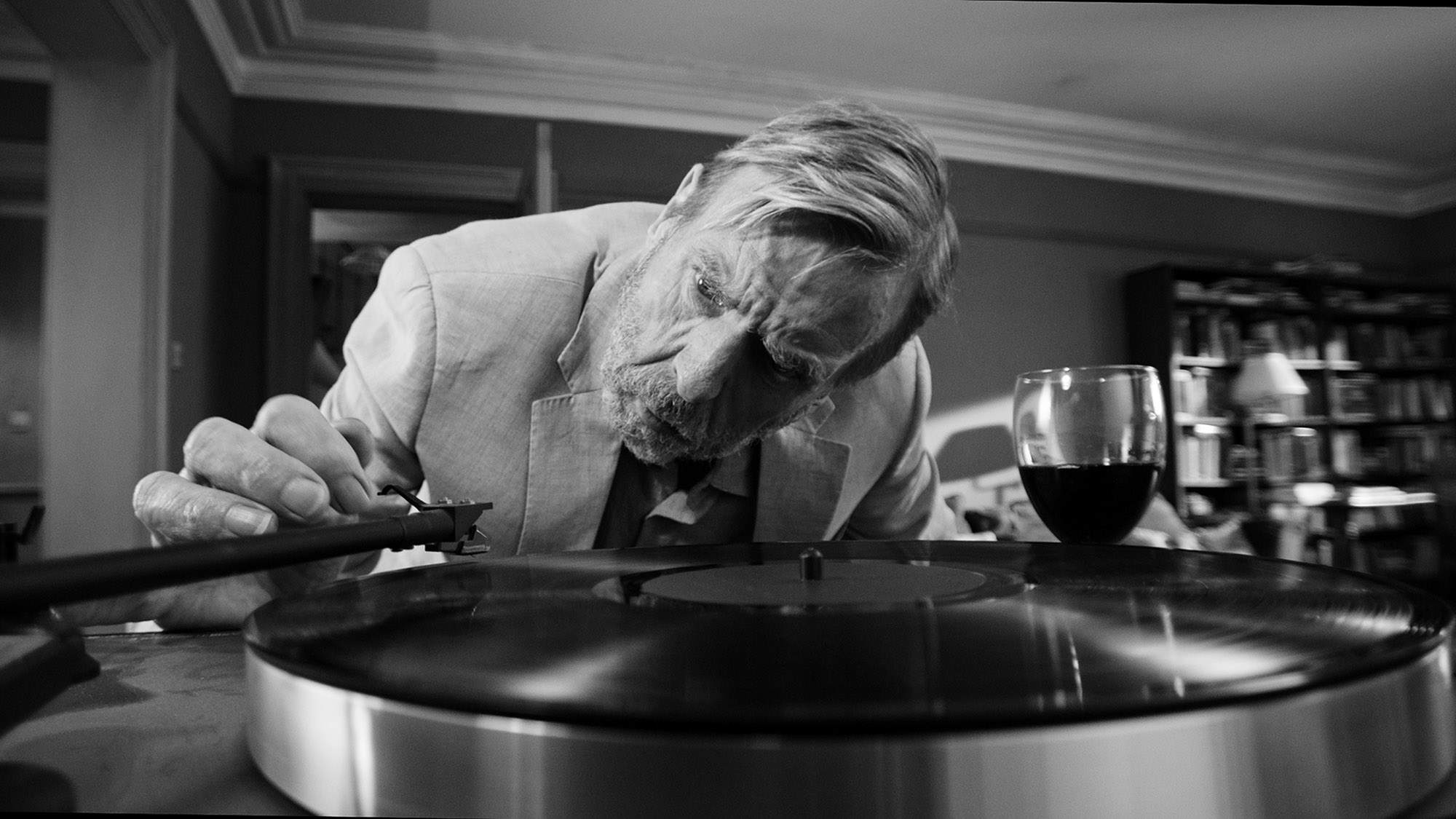Take one of the strongest casts in British cinema and put them in a confined space; it was always going to be fun. Sally Potter’s The Party sets its sights on the duplicitous liberal elite, where venality hides behind paper-thin morals.
Janet (Kristen Scott Thomas) is hosting a get-together in celebration of her promotion to Shadow Health Secretary. Her husband Bill (Timothy Spall) is strangely quiet, barely acknowledging the arrival of their guests: the brilliantly sour April (Patricia Clarkson), her new-age life coach partner Gottfried (Bruno Ganz), feminist academic Martha (Cherry Jones), and her pregnant wife Jinny (Emily Mortimer). Once coked-up banker Tom (Cillian Murphy) joins proceedings, the pleasantries fall away as Bill reveals his big secret.
The exposition-heavy dialogue creaks through the opening 10 minutes, with every character explaining each other’s jobs and relationships as if being tested. It’s unsubtle, but it puts the pieces in place, allowing the film to swiftly move into anarchy. Every character is vain and hypocritical, desperately battling their own impulses to appear tolerable. When secrets start spilling over, fragile factions form in a pressure cooker environment, allegiances quickly changing with each reveal. Once in full flow, it’s a pure joy to watch; the cast have a riot, bouncing around the rooms to an eclectic soundtrack provided by Bill’s record player. There are moments of true comic gold, from The Thick of It-style implications of the Shadow Health Secretary’s husband going private for a terminal diagnosis, to the daft panic when searching for the right music to revive a dying man. Disappointingly, the ending peters out with a whimper, unable to find a satisfying conclusion to the madness. The final reveal attempts one more rug pull, but it feels cheap in comparison to the excellence preceding it.
Once in full flow, it’s a pure joy to watch; the cast have a riot, bouncing around the rooms to an eclectic soundtrack provided by Bill’s record player. There are moments of true comic gold, from The Thick of It-style implications of the Shadow Health Secretary’s husband going private for a terminal diagnosis, to the daft panic when searching for the right music to revive a dying man. Disappointingly, the ending peters out with a whimper, unable to find a satisfying conclusion to the madness. The final reveal attempts one more rug pull, but it feels cheap in comparison to the excellence preceding it.
It’s easy to imagine The Party starting life as a stage play, with its single setting and elements of farce, but it is a visual treat on the screen. The black and white presentation gives events a surreal grandeur, turning a middle-class suburban home into a monochromatic stage. Close ups of frantic faces (in particular, king of the crazed looks Cillian Murphy) build a claustrophobic atmosphere, highlighting every twitch as an amplified tell.
The house itself was a purpose-built set, as revealed in the special features on this release. After scouting various locations, production designer Carlos Conti and director Potter combined their favourite elements to create the ideal layout on a soundstage. The documentary on its construction is surprisingly fascinating, showing the lengths gone to make the rooms appear convincingly lived in. It emphasises the role that the house plays, perfectly designed to appear simultaneously spacious and suffocating on film.
Also included is a huge collection of interviews from the entire cast, along with Sally Potter and the film’s producers. It confirms that the script’s wit and depth was a major draw for the cast, who can demand hefty fees on more commercial vehicles. It’s a shame that the presentation of the interviews is so unimaginative, nothing more than soundbites presented with minimum effort. Still, it’s more than most British indies offer on home release, and worth it for that hour of perfect madness.
@OwenRichards91
Overleaf: watch the trailer for The Party







 Once in full flow, it’s a pure joy to watch; the cast have a riot, bouncing around the rooms to an eclectic soundtrack provided by Bill’s record player. There are moments of true comic gold, from The Thick of It-style implications of the Shadow Health Secretary’s husband going private for a terminal diagnosis, to the daft panic when searching for the right music to revive a dying man. Disappointingly, the ending peters out with a whimper, unable to find a satisfying conclusion to the madness. The final reveal attempts one more rug pull, but it feels cheap in comparison to the excellence preceding it.
Once in full flow, it’s a pure joy to watch; the cast have a riot, bouncing around the rooms to an eclectic soundtrack provided by Bill’s record player. There are moments of true comic gold, from The Thick of It-style implications of the Shadow Health Secretary’s husband going private for a terminal diagnosis, to the daft panic when searching for the right music to revive a dying man. Disappointingly, the ending peters out with a whimper, unable to find a satisfying conclusion to the madness. The final reveal attempts one more rug pull, but it feels cheap in comparison to the excellence preceding it.


